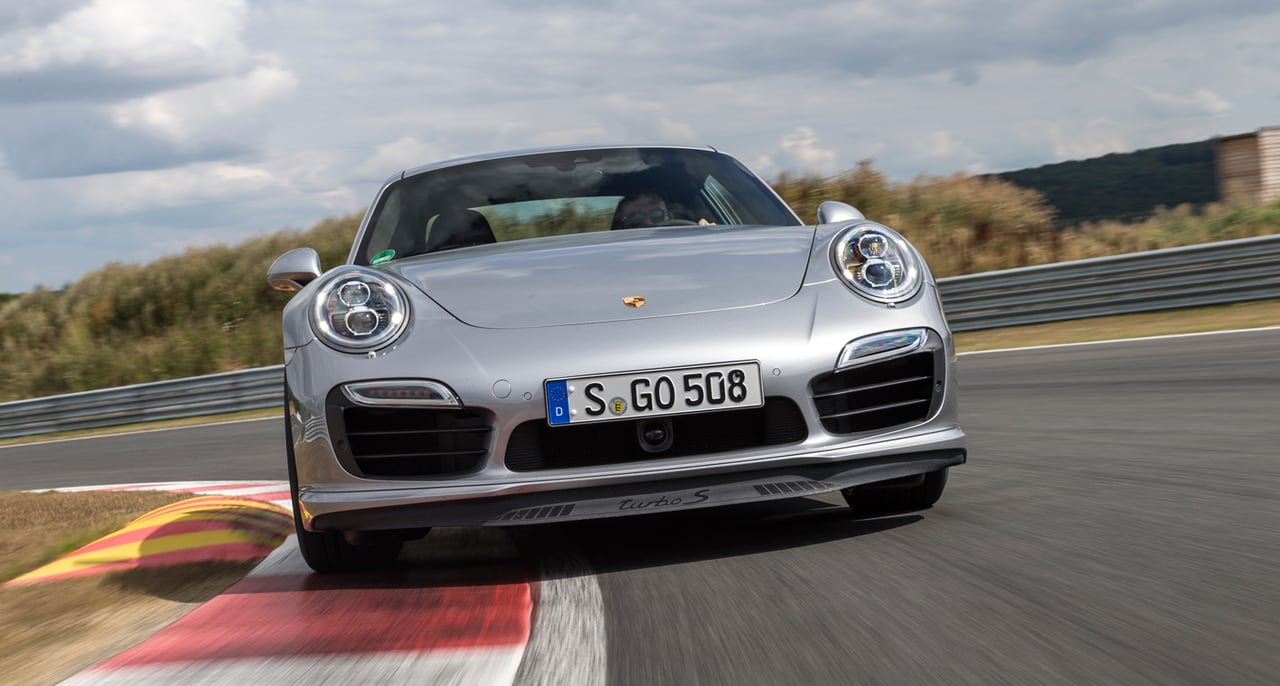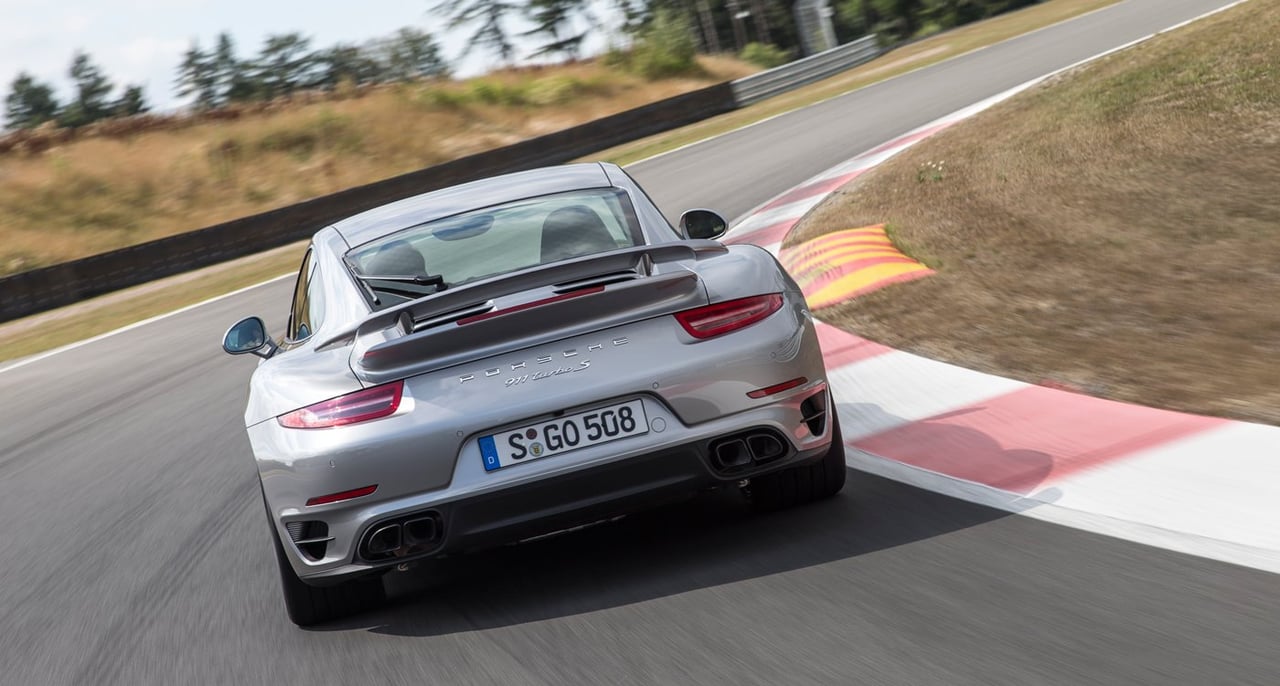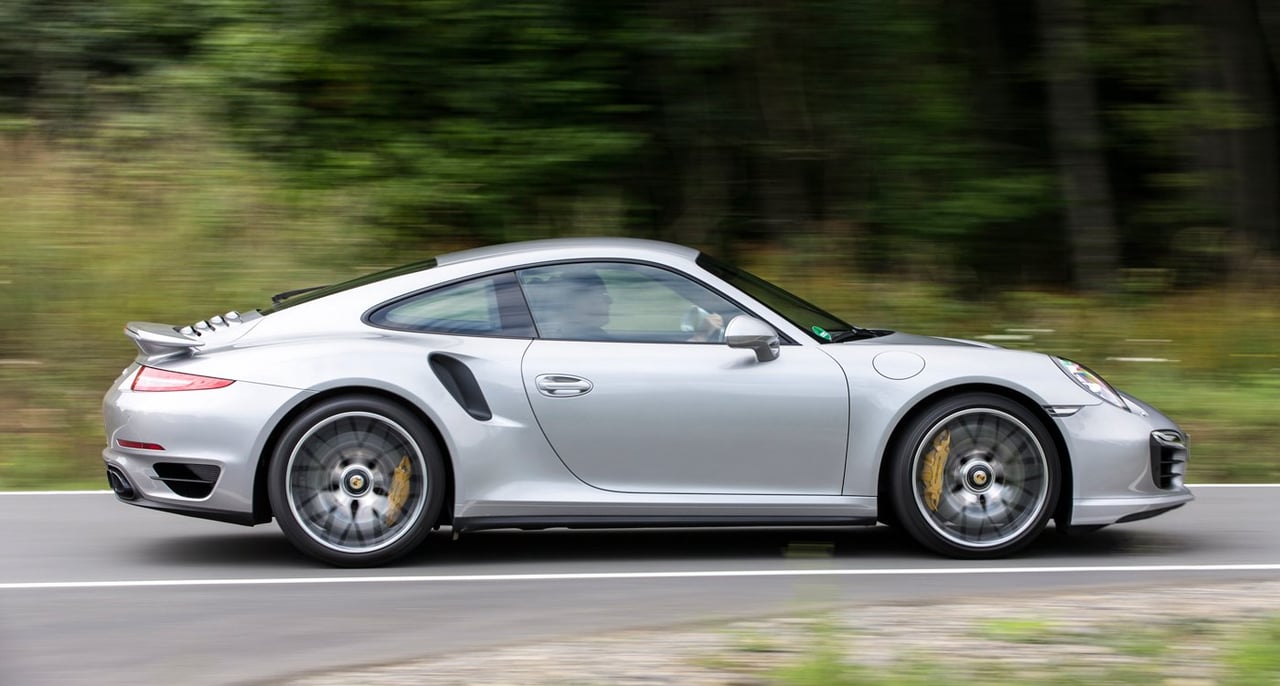Zero to 62mph takes just 3.1 seconds. Oomph! That’s sensational…
The dash from standstill to 62mph takes just 3.1 seconds. Oomph! That’s sensational… The Stuttgart company has set uncompromising performance as bywords for both the new 911 Turbo and Turbo S models. Which is to be expected, as for year after year it’s been the Turbo that has topped Zuffenhausen’s range. Both models offer maximum technology and driving dynamics, but it’s the 560bhp (vs. 520bhp) Turbo S that really hits the summit of the 991 series of 911s, introduced as an all-new car in 2011.
So how is the new 911 Turbo actually better than its predecessor?

Let’s not waste time listing technical data. We can mention that the new 911 Turbo’s fuel consumption is now a modest 9.7l/100km (29.1mpg), which is impressive, but this car is more about driving than quoting figures. First of all, look at its sporty tailoring: compared with the standard 911, as always the Turbo variant is even wider (by 28mm) at the rear. It has air intakes on the rear arches, just behind the doors – another trademark. In this car, Espresso Brown leather creates an almost homely air in the cabin. However, take in the armada of switches on the centre console and you soon realise that this car is deadly serious about its art.
The roads that lead to Bad Driburg are well known enough to dip into any of the many settings around the PDK (Porsche’s 7-speed, twin-clutch automatic gearbox, standard on the Turbo) lever. Our destination? The new Bilster Berg Drive Resort where, in 2009, we tested the previous 911 GT3 – albeit under very different conditions.
A boxer hits out

Since 2009, the circuit has changed. It’s now a winding track, looping its way around a wooded knoll: the perfect track for the new Turbo S. At the end of the pit lane I’m fully on the gas – and the Porsche really takes off. The new 4wd system controls the distribution of power markedly faster and with more precision than before, with anything from nothing to 100% available at each corner. The result is phenomenal traction. The PDK 'box, in its latest iteration, changes gear more quickly than you can imagine. From the exhausts come typical turbocharged flat-six rumbles and roars. With short bursts, the turbochargers hiss and the Turbo S seems in its element. At 7,200rpm the boost has reached 1.2 bar, with 0.2 bar available on overboost. The car feels fast - but also supremely competent, technically.
At home in the curves

Over the course of the twisty Bilster Berg track, you can feel the chassis, in conjunction with the 100mm-longer wheelbase, talking to you. It is agile and turns in quicker than before, and is also noticeably quieter than before. At high speeds, active spoilers on the tail and under the chin of the car adapt the aerodynamics for the best effect, giving additional downforce when required.
Everything has its price. The 195,000-euro Turbo S has 20in wheels, ceramic brakes, active anti-roll suspension and the Sport Chrono package as standard. In addition, full LED lights feature at the front. In other words, it’s state of the art and, thus equipped, the 198mph Turbo S should lap the Nürburgring Nordschleife in under 7m 30s. On standard road tyres.
Conclusion: there might be supercars with even more power, but few are as clever or controlled as the latest Porsche 911 Turbo. It represents the power of perfection. Both models, the Turbo and Turbo S, are cars able to be used everyday and, for those happy to settle for 'just' 520bhp, the standard Turbo is available from 162,000 euros.
Photos: Frank Ratering












